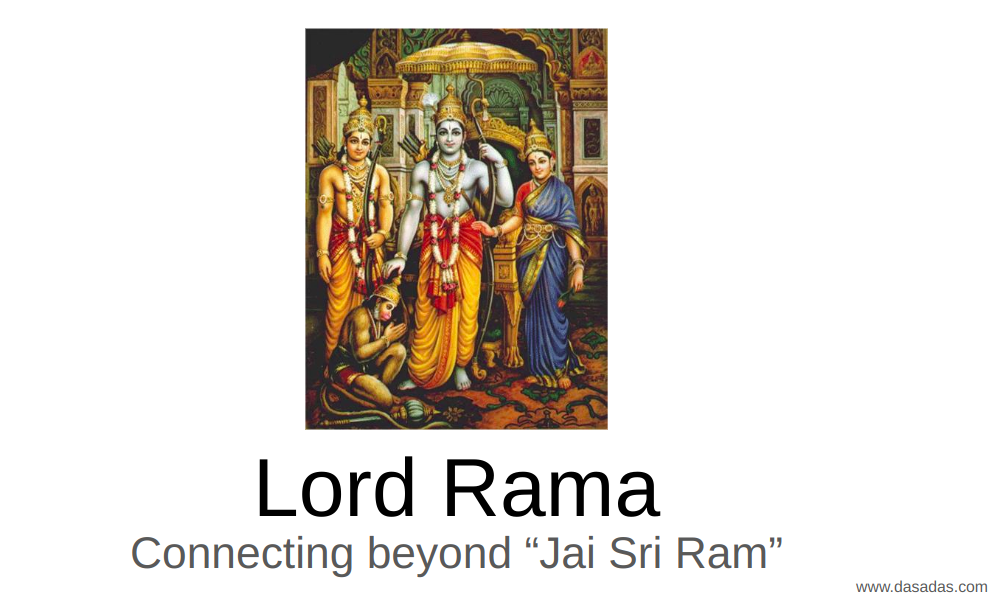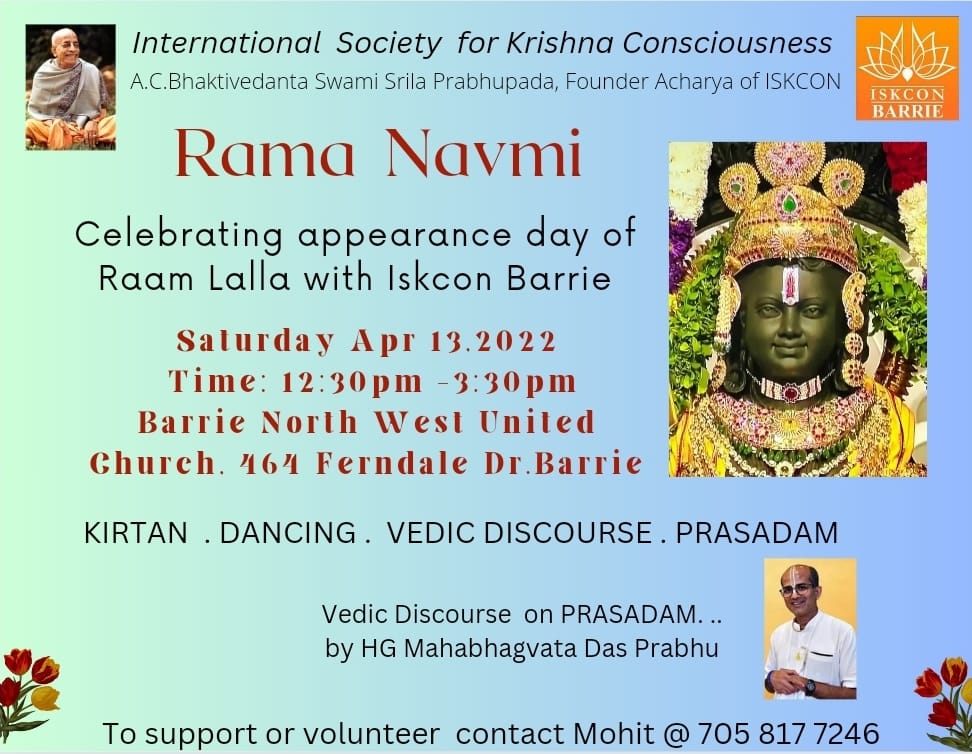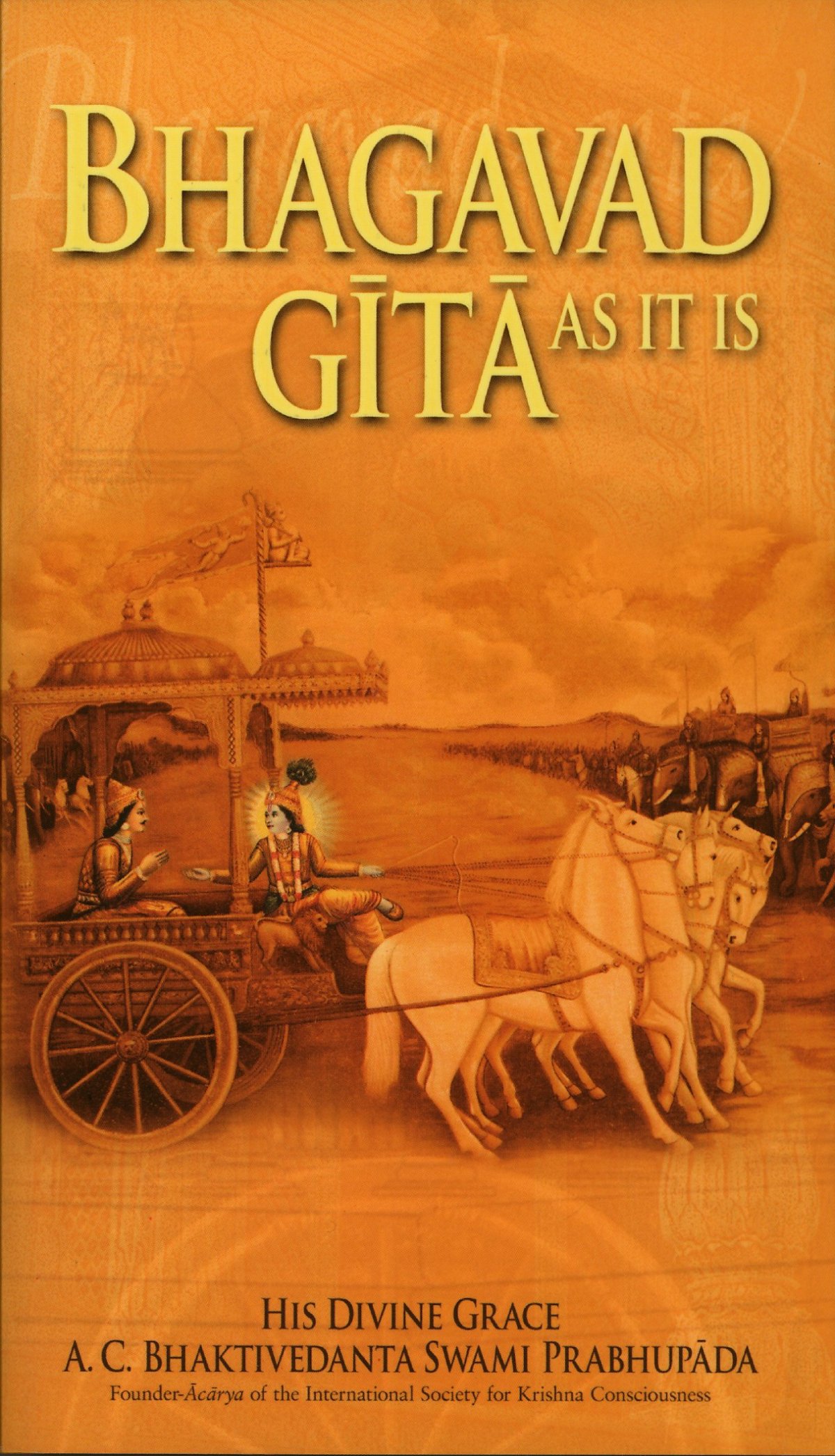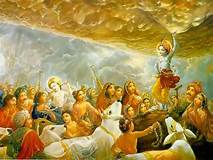Kaspars, 06 August 2016
Dear devotees.
Please accept my humble obeisances.
All glories to Srila Prabhupada.
All glories to Srila Gurudeva and Gurumata.
Yesterday I was reading Bible and found an amazing similarity with Bhagavad gita. Every text of these quotes, goes in the same meanings and in the same order. Further in both scriptures, devotional service is explained. What do you think about it?
Bible Psalm 90
A prayer of Moses the man of God.
1 Lord, You have been our dwelling place in all generations. 2 Before the mountains were born Or You gave birth to the earth and the world, Even from everlasting to everlasting, You are God. 3 You turn man back into dust And say, “Return, O children of men.” 4 For a thousand years in Your sight Are like yesterday when it passes by, Or as a watch in the night. 5 You have swept them away like a flood, they fall asleep; In the morning they are like grass which sprouts anew. 6 In the morning it flourishes and sprouts anew; Toward evening it fades and withers away. 7 For we have been consumed by Your anger And by Your wrath we have been dismayed.
Bhagavad gita Chapter 8
8.15 — After attaining Me, the great souls, who are yogīs in devotion, never return to this temporary world, which is full of miseries, because they have attained the highest perfection.
8.16 — From the highest planet in the material world down to the lowest, all are places of misery wherein repeated birth and death take place. But one who attains to My abode, O son of Kuntī, never takes birth again.
8.17 — By human calculation, a thousand ages taken together form the duration of Brahmā’s one day. And such also is the duration of his night.
8.18 — At the beginning of Brahmā’s day, all living entities become manifest from the unmanifest state, and thereafter, when the night falls, they are merged into the unmanifest again.
8.19 — Again and again, when Brahmā’s day arrives, all living entities come into being, and with the arrival of Brahmā’s night they are helplessly annihilated.
Hare Krishna
Thank you.
Kaspars
Mahabhagavat Das SDA, 08 August 2016
Dear Kaspars,
Hare Krishna!
Please accept my humble obeisances.
All glories unto Srila Gurudeva.
All glories to Srila Prabhupada.
Thank you for this nice reflection.
There are some similarities and differences too, for example, the reference to thousand years in Moses’ prayer and thousand ages in Krishna’s precise instruction, are quite different in their meaning.
Once we read Srila Prabhupada’s books though, we begin to see all scriptures in the light of Srila Prabhupada’s purports.
I began studying The Holy Bible when I was 10 years of age, and I did a very detailed course with Q&A reviewed by teachers etc., and I have come across so many wonderful passages from the Bible over the years also.
But I understood more from all the scriptures (Vedic and otherwise) I had read after I read Srila Prabhupada’s books. And I got a very non-sectarian understanding of religion, so much so that I have begun to say whenever someone asks me which religion I follow, that “I am past the labels at this point”, which typically leads to a positive discussion in more togetherness.
Consequently now though, having seen that the Vedic scriptures are the source of all the scriptures in the world, I don’t spend time studying other scriptures, but focus my energies on studying Srila Prabhupada’s books in a deeper way.
Other devotees should contribute their reflections and perspectives to make this a rich and useful conversation.
your servant,
Mahabhagavat Das
Nikhil Mishra, 8 August 2016
Hare Krsna Kaspars Prabhu
Thats indeed a very nice comparison. And i am sure, you will end up finding many many other similarities if you research more.
Long time back, i read Paramhamsa Yogananda ji and he also compares Bible and Gita beautifully.
Srila prabhupada as well as Srila gurudeva says, essence of all religions is to know and love God .So you see , to a sincere seeker like you, lines of Holy Bible are making so much sense .
Wishing you more bhakti(devotion) and Gyan(knowledge) and begging the same for me..
Hari bol. Praise the Lord.
Nikhil
Kaspars Gulbis, 09 August 2016
Dear Mahabhagavat Prabhu.
Hare Krishna.
Athough there are difference between thousand years and thousand ages, still the way they are compared… like a one day to God, and then again, to night. Every text and meanings goes in the same order in both scriptures, and I understand from this, that Moses knew Bhagavad gita. Its obvious.
As Prabhupada said, Bible is like small pocket dictionary, Bhagavad gita and Srimad Bhagavatam is like big dictionary, where every smallest thing is explained. We now can actually understand Bible better. I think nothing bad reading Bible. With the mercy and help of our beloved Gurudev and Prabhupada, we can now understand the true meaning of scripture. As our Gurudev teaches, we can remain in our religions, and with the help of Krishna consciousness, we can be better Christians, better Muslims, better Buddhists. The universal principle of love of God still remains the same. In one of the recent Thought for The Day Gurudev declared, that he is actually a Christian, who is following the will of God, and that was especially important sign to me personally, because I want to remain close contact with Cristianity and Christians, and Jesus. Because was not Jesus, we would be nowhere. Mlechas would be nowhere. Jesus is the way. Christianity shows the way of holy life, they teach that there IS God. And from that we can ask, Who is God? I think many people then are curious, if there is God, how does He look like. And true Christians with open heart will deffinetely meet a devotee with Prabhupadas books. And I heard a story that one Cristian has actually seen Paramatma as we just know from our books. And now this Cristian would offer full dandavats if he sees Harinama party singing, even if it is raining, wet and dirty ground.
Please comment.
Everyone is welcome to say something.
Thank you
Kaspars
Chenthil Piruthu, 09 August 2016
Respected Kaspars Prabhu
Hare Krishna.
Thank you so much for your mail, your conviction is truly inspirational.
Thanks,
Chenthil.
Premananda das, 09 August 2016
Hare Krsna Bhakta Kaspars
Please accept my humble obeisances
All glories to Srila Gurudeva
All glories to Srila Prabhupada
Whether one is a Christian,Hindu,Muslim,Jain,Buddist etc the essence of religion is to become a lover of God.The original constitutional position of living entitiy is to be a servant of servant of servant of the servant of Krsna.Krsna has unlimited names and incarnates in many forms like Rama,Nrsimha,Vishnu,Vamana ,Varaha,etc but the original form is the beautiful form of Krsna a blusih boy with two -handed form and playing a flute.In Brahma-samhita Lord Brahma mentions that Krsna is original cause of all the causes and has an eternal body full of knowledge and bliss.He is unborn,original and maintainer of all living entities.
In Bhagavat Gita 8..14 it is mentioned Krsna has various plenary expansions and incarnations such as Rama,Nrisimha ,Varaha etc and a devotee can choose to fix his mind in loving service on any of his transcendental forms of the Supreme Lord ,such a devotee does not meet other problems that plague the practitioners of other yogas.Bhakti yoga is very simple,pure and easy to perform.It starts with simply chanting Hare Krsna.It is mentioned that the lord is merciful to all but one who serves Him with exclusive devotion without deviation is helped by Krsna.
A pure devotee can not forget Krsna for a moment and similarly the Supreme lord cannot forget His pure devotees for a moment.
This is the great blessings of Krsna conscious process that by chanting the Hare Krsna maha-mantra-Hare Krsna Hare Krsna Krsna Krsna Hare Hare Hare Rama Hare Rama Rama Rama Hare Hare one becomes freed from all material contamination and attains to his natural position as a servitor to Krsna.
your servant
Premananda Das
Kaspars Gulbis, 09 August 2016
Thank You, Chenthil Prabhu,
All Glories to Srila Prabhupada.
Yes lets try to share some inspiration when ever this is possible. May our Gurudev be pleased. I think every one of us has some story, lets share in this group and discuss..
With love
Kaspars
Kaspars Gulbis, 09 August 2016
Thank You Premananda Prabhu,
All glories to Srila Prabhupada.
This is wonderful short inspirational essence explained by you, to know who we are, to know who God is, original God Krishna, in His various forms, and wonderful process of chanting His names.
Thank you
Kaspars
Mahabhagavat Das SDA, 09 August 2016
Dear Kaspars,
Hare Krishna!
You are right about Lord Jesus Christ, if you recall, he helped me a lot and is helping me to this day 🙂 Srila Prabhupada mentions him as a Shaktyavesha Avataar, or empowered incarnation of God.
“Now, in the Śrīmad-Bhāgavatam, perhaps in the Third Chapter in the First Canto, you’ll find there is description of different incarnations, principal incarnations—not all the incarnations, principal, in different yugas. So in that list of incarnations you’ll find Lord Kṛṣṇa’s name also, Lord Rāma’s name also, Lord Buddha’s name also. Lord Buddha is mentioned in that list. So we, Vaiṣṇavite, we respect Lord Buddha as incarnation, incarnation. So do not think that the Hindus, they have got disregard for Lord Buddha or for Lord Jesus Christ. No. They have all regard. Anyone who comes as representative of God, or as God, as powerful incarnation, they are all welcome. According to time, according to place, according to the audience, they may speak, speak something which is, which may be different from the Vedic conclusion, but they are accepted as powerful incarnations. ” Lecture on CC Madhya-lila 20.154-157 — New York, December 7, 1966
Srila Prabhupada and the other Acharyas in disciplic succession from Sri Chaitanya Mahaprabhu are for everyone, including myself, who could easily be seen as worse than a mleccha (uncultured uncivilized person who does things like kill the mother cow).
I do agree with you in general, but there is no authoritative information to agree on the details at this point. For example, the 1000 ages Krishna mentions are not even a day of “God”, they are simply one day of Brahma, who is not God – God’s time scale has no days and no nights, simply the eternal ever-present. We do accept that all great prophets and teachers around the world across ages know the same Absolute Truth in varying degrees of understanding, realization, and detail.
Re “It is obvious”, we don’t argue on the basis of personal opinions in this tradition. We can certainly accept that certain devotees have certain realizations, and we don’t begrudge them their realizations, but that is not always accepted as the Parampara understanding of a particular situation.
I am not saying someone should not do this or that – you please do as your spiritual master instructs you. I was simply expressing my own situation. My spiritual master has instructed me to carefully study Srila Prabhupada’s books and share them with the whole world, and I feel that this one lifetime will not be enough for that purpose. If, during that attempt and process, I get to read certain other sacred texts, wonderful.
Sincerely,
Mahabhagavat Das
Jayendran C, 10 August 2016
Hare Krishna Kaspar prabhu
Dandavats Pranams
All glories to Srila Prabhupada
All glories to the assembled devotees
I have attached an excerpt from Bhaktisiddhanta Vaibhava which depicts Sri Bhaktisiddhanta Saraswati Thakuras, views on the Bible and Christianity . I hope this adds constructively to the discussion.
“Christ’s message in its pristine and fully blossomed form is included in Lord Caitanya’s philosophy, for Mahāprabhu’s gifts are of an altogether higher dimension than the acceptance of God’s existence, the promises of reward and threats of punishment, and the moral injunctions that form the basis of Christianity; and whereas Christianity expounds the fatherhood of Godhead, Gauḍīya Vaiṣṇava dharma goes further, to the transcendental son-hood and consort-hood of Godhead.
Śrīla Sarasvatī Ṭhākura described that to consider the Lord our parent entails “the rotten concept that He is our servitor and we the enjoyers.”. As he told the challenging Professor Suthers, “We claim to be greater and better Christians than Westerners.”While lauding Jesus as a śaktyāveśa-avatāra3who “did not teach the ‘eat, drink, and be merry’business,”
Śrīla Sarasvatī Ṭhākura clearly delineated the superior position of Gaura-bhaktas over that of Lord Jesus: In the Western countries, Christians believe that the magnanimous Lord Jesus Christ is the only guru, who appeared in this world to accept the burden of all sins of the jīvas. But associates of Śrī Gaura like Śrī Vāsudeva Datta Ṭhākura and Śrī Haridāsa Ṭhākura are unlimitedly millions of times more advanced and liberal than Jesus Christ, because they taught Vaiṣṇava prema-bhāva to benefit all people in the universe.
In Śrī Vāsudeva Datta Ṭhākura, selflessness by relinquishing mundane self-interest, and others’ and one’s own spiritual welfare in the form of serving Viṣṇu, are superbly harmonized. Recognizing Śrī Gaurasundara as the ultimate reality devoid of all illusion and the original Personality of Godhead, Vāsudeva Datta bore on his shoulders the burden of the material disease of all jīvas—their indifference to Kṛṣṇa—and not only their sins, but superlatively more formidable, their multitudinous terrible offenses. Thus he sincerely prayed with mind, body, and words to free the jīvas from the malady of material existence. This example of compassion is far beyond the imagination of the greatest karmīs and jñānīs, not only in this world, but in all the fourteen worlds. Since the jīvas, prone to violence because of seeing differences arising from false identity due to illusion, revere and idealize karma and jñāna in the world of duality, most of them become bad karmīs and bad jñānīs. On hearing of the desire of Vāsudeva Datta Ṭhākura, the servant of the spiritual world, to suffer in hell for these jīvas, such persons, who are impelled by innate malice and a dualistic outlook, give him great respect, seeing him as a regular pious karmī or jñānī. But Datta Ṭhākura’s compassion for the jīvas is unlimitedly millions of times greater than that conceivable by bad karmīs and bad jñānīs. This is not highly prejudiced exaggeration or interpretation, but straightforward elucidation of the truth. Verily, the world is blessed by the coming of such servants of Gaura, by whom not just this earth, but all jīvas everywhere, have become fortunate. Eloquent speakers’ tongues reach perfection by glorifying the qualities of such devotees of Lord Caitanya. And the pens of poets and historians who have forsaken mundane research attain their highest success in describing the qualities of these mahā-bhāgavatas imbued with selfless devotion to the Lord. Such is the “greatness among greats”and “gloriousness among the glorious”of the servants of the abundantly magnanimous Śrī Kṛṣṇa Caitanya.
Śrīla Bhaktisiddhānta Sarasvatī detected the flaw in philosophically attempting either to humanize God or deify man, which albeit present in perverted Hinduism in a conceptually quite different manner, was the very foundation of Christianity. When some Christian priests proposed to him that mādhurya-rasa is also an aspect of Christianity, as evidenced by those medieval mystics who sought unity with Christ as their bridegroom, Śrīla Bhaktisiddhānta Sarasvatī rejected that claim, for such esoteric endeavors were focused on the son of Godhead rather than directly on the Supreme Lord Himself. Śrīla Sarasvatī Ṭhākura shed the light of Gauḍīya siddhānta on certain Biblical teachings. He equated Jesus’ famous submission “Thy will be done,”spoken from the position of a devotee, to the similarly well-known conclusion of Bhagavad-gītā, sarva-dharmān parityajya mām ekaṁ śaraṇaṁ vraja (Abandon all varieties of dharma and just surrender unto Me), uttered from the standpoint of Godhead. He cited Biblical instructions to chant the names of God as being in accord with the saṅkīrtana movement, and stated that if offered in unmixed devotion, church prayers are also kīrtana. He deemed the supplication “Give us our daily bread”as being far from true devotion, for God should not be regarded as a servitor to be called upon to provide corporal demands; rather, one should request food for the soul. He would often quote the commandment “Do not take the name of the Lord in vain”and comment that it had been misinterpreted by “pseudo-teachers”; God should not be called upon for supplying temporal needs, and thus to not take His name in vain means to chant without anyābhilāṣa (motive other than pure devotion): Pure devotees do not chant the Lord’s names to counteract sinful reactions, accumulate piety, or attain supernal pleasures, nor to mitigate famine, pestilence, social unrest, civil insurrection, or disease, nor to obtain wealth, an earthly kingdom, or any other object of personal enjoyment.
Since the name of Bhagavān is directly the Supreme Personality of Godhead, to ask Him to fulfil our wishes is to consider Him, the supremely worshipable, our servant. This is an offense. Therefore, calling the Lord’s names for any reason other than to attain His devotional service is useless. Jesus Christ told us not to take the Lord’s name in vain, or uselessly. Yet this doesn’t mean that we do not need to chant the Lord’s names constantly—while sleeping, while dreaming, while eating, or when walking about. To chant the Lord’s name, begging for His service, is not a useless activity; it is our only duty. But to make a show of chanting for some other purpose, for actualizing our own desires, is useless. We should not take up chanting the Lord’s names in vain. We should not chant to attain dharma-artha-kāma-mokṣa. Instead, we should always chant to attain service to Bhagavān. Do not chant the name for elevation or salvation, whereby you will entangle yourself instead of attaining service to the Absolute.
In Christians’ emphasis on mundane charitable works, Śrīla Bhaktisiddhānta Sarasvatī perceived ignorance of the rudimentary spiritual principle of difference between body and soul. And he detected aversion to Godhead in the concept of a Beelzebub, or a rival of Godhead. He declared that hearing and chanting of Hari-kathā is the actual method for purgation of sins, and that the Western system of confession is hypocritical.He stated that through the misconceptions that there can be only one guru in the total course of history, and that the soul has only one birth, Semites had introduced many obstacles to legitimate spiritual understanding, and that such misunderstandings must be dispelled.* He also warned that if the semitic psychology, represented by the notion of an undefinable Supreme Being, was tantamount to asserting that God is formless, then it struck at the very root of all genuine spiritual activity.10 Similarly, he found a whiff of voidism in the Christian doctrine of creation ex nihilo. And in a letter sent to Saṁvidānanda Prabhu in London, Śrīla Bhaktisiddhānta Sarasvatī confided that because the outlook of Westerners was based one hundred percent on sense enjoyment, their belief in God was not solid, but tenuous and blurred.
The Harmonist analyzed Christianity and mundane empiricism as concordant, inasmuch as both “justify the life of refined eating and drinking,” and also deemed: “The Bible contains some indirect references to transcendence hopelessly mixed up with precepts of mundane ethical expediency.” Further: The questions that will require to be discussed in connection with the teaching of the Bible, as it is current among the Christians of our day, will be as follows: Nebulous conception of the Personality of Godhead. Mundane and numerically limited conception of saviorship (guru). Confusion between conditioned and free spiritual functions. Overvaluation of hollow mundane morality. Confusion between so-called moral and spiritual conduct. Mundane organization of the Christian church. Superstitious rituals and doctrines opposed to philosophical and scientific experience.
Circa 1903 Śrī Siddhānta Sarasvatī was traveling with Śrīla Bhaktivinoda Ṭhākura by train from Ranaghat to Krishnanagar when a Christian dignitary, Reverend Butler, entered their coach. Seeing the japa-mālās in their hands he inquired about their identity, to which Śrī Siddhānta Sarasvatī replied, “Like you, we are missionaries. We are preachers of Śrī Caitanya’s dharma.”Immediately the priest challenged that the dharma of Śrī Caitanya consisted of idol worship and taking the Lord’s name in vain. After hearing Śrī Siddhānta Sarasvatī’s protracted response, Reverend Butler declared that previously he had discussed the same topics with many reputed paṇḍitas and religious leaders of Navadvīpa, but unlike Śrī Siddhānta Sarasvatī, none had been able to give an intelligent response.When told that no one in Vṛndāvana could proffer a satisfactory rebuttal to a visiting Christian priest who had accused Kṛṣṇa of flouting Vedic principles by dancing with others’ wives, Śrīla Bhaktisiddhānta Sarasvatī commented that Vṛndāvana is inhabited by neophyte devotees. Christians who came in contact with Gauḍīya Vaiṣṇavism tended to become perplexed at how a doctrine so theistic and devotional could yet be founded on what they considered indelicate tales of the adulterous liaison between Rādhā and Kṛṣṇa. They invariably made the seminal miscalculation of ascribing the abysmal condition of contemporary Gauḍīya Vaiṣṇava dharma to an intrinsic amorality, an opinion that modern-thinking Hindus typically dittoed. Śrīla Sarasvatī Ṭhākura and his followers invested tremendous energy to refute such claims and establish Kṛṣṇa’s purity as far beyond that imaginable by mundane moralists, whose insistence that Godhead must conform to behavioral standards was actually an impertinent imposition on His absolute freedom. “
your servant,
Jayendran
Kaspars Gulbis, 11 August 2016
Dear Jayendran Prabhu
All glories to Srila Prabhupada.
Reading your wonderful explanation I got Perfect understanding of bad faults in so called Christianity, and understood, many good ideas how to improove in pure devotional motives, attitude, pure prayer, pure devotional actions, and many subtle details.
Thank you so much.
Kaspars
Jayendran C, 22 August 2016
Hare Krishna Kaspers prabhu,
This was one of the excerpts I distinctly remembered that we had read in our local center on the occassion of Bhaktisiddhanta Saraswat Thakur’s appearance day. All glories to HH Sri Bhaktisiddhanta Saraswati Thakura and HH Bhakti Vikasa Swami who compiled all this ! 🙂
your servant,
Jayendran
Kaspars Gulbis, 23 August 2016
Dear Nikhil
Hare Krishna
Thanks for your inspiring words, encouragement and blessings, your words means so much to me.
Thank you
Kaspars
Bhakta Sunil, 23 August 2016
Hare Krishna dear Kaspars Prabhu,
Please accept my humble respects,
All Glories to Vaishnavas,
Nice points you noticed and nice answers too,
Jesus Christ is a great Vaishnava, thus we notice so many similarities between the Scriptures,
In this connection , i would like to share a very recent “thought for the day” of 2nd August 2016, via http://www.backtohome.com which helps us to understand Jesus Christ’s teachings in it’s original pure form including the knowledge which Jesus has not revealed yet :
—
Which Path to Follow?
uploaded from ISKCON Austin, Texas USA
Often times people are baffled in their attempt to understand which path they should follow. But the answer is very simple. In which scriptures has God most fully revealed Himself? In the Bible Jesus says that there is more knowledge that he has not revealed yet. But in the Bhagavad-gita 7.2 Krishna says, “
jñānaṁ te ‘haṁ sa-vijñānam
idaṁ vakṣyāmy aśeṣataḥ
yaj jñātvā neha bhūyo ‘nyaj
jñātavyam avaśiṣyate
“I shall now declare unto you in full this knowledge, both phenomenal and numinous. This being known, nothing further shall remain for you to know.”
There are no scriptures in the world in which God is more fully revealed than in the Vedic wisdom. From the Vedas we learn about His names, His qualities, His pastimes, His abode, His associates, etc. No other scriptures give us such complete information. So considering this, it doesn’t take half a brain to understand that one should obviously follow the path of the Vedas, which culminate in understanding the Supreme Lord as Krishna, if he wants to have the highest level understanding and realization of God.
Sankarshan Das Adhikari
Sincerely,
Bhakta Sunil
Please subscribe to daily inspirational emails from His Grace Sriman Sankarshan Das Adhikari (Writings and lectures archived at www.sda-archives.com), written fresh every day from his travels around the world sharing the highest spiritual knowledge with everyone. Sign up now at www.joincourse.com
Benefit others now. Share this:










